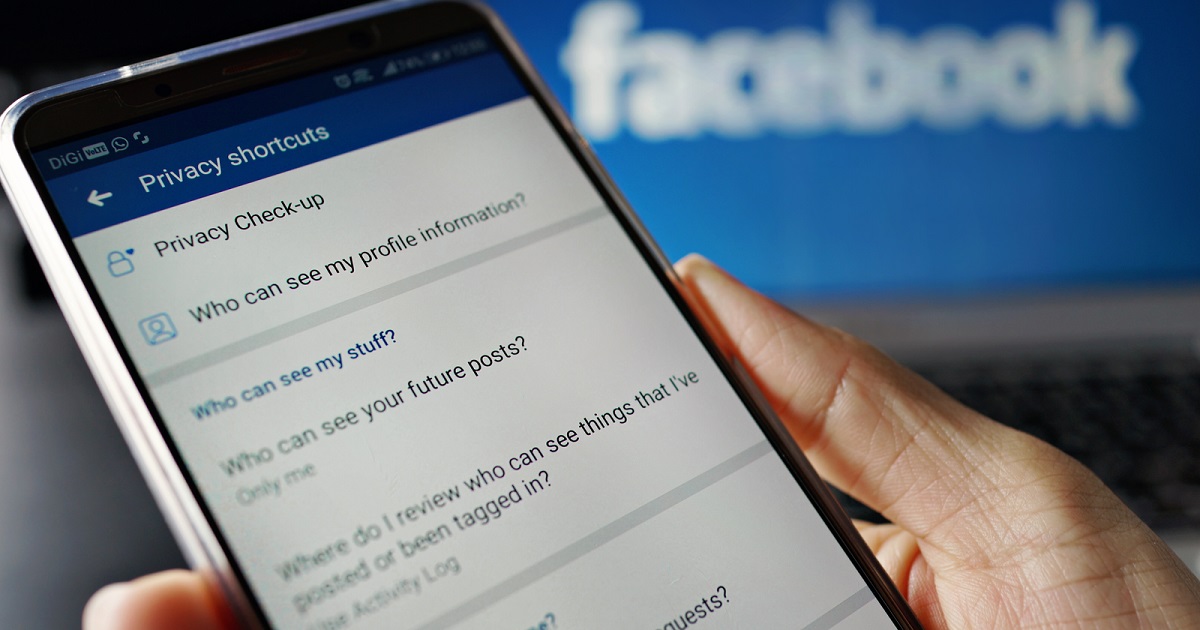Introduction
Facebook is one of the most popular social media platforms in the world, with billions of users engaging with its features on a daily basis. With such widespread usage, it is essential for Facebook to prioritize the security of its platform. To ensure that their platform remains safe and secure, Facebook has implemented a Bug Bounty Program that rewards individuals who are able to identify and report vulnerabilities or bugs within their system.
The Bug Bounty Program not only allows Facebook to discover and fix potential issues before they are exploited by malicious actors, but it also provides an opportunity for skilled hackers and security enthusiasts to showcase their abilities. In recognition of their contributions, Facebook offers substantial cash rewards to individuals who are successful in hacking the platform.
While hacking typically has negative connotations, ethical hacking or “white hat” hacking plays a crucial role in cybersecurity. Through the Bug Bounty Program, Facebook encourages individuals to responsibly disclose any potential vulnerabilities they discover, rather than exploiting them for personal gain.
In this article, we will explore the inner workings of Facebook’s Bug Bounty Program. We will discuss what qualifies as a successful hack, the factors that determine the payout amount, and provide examples of previous Facebook hack payouts. Additionally, we will delve into the process of reporting a bug to Facebook, how hacks are evaluated and verified, the payment methods and amounts, and share tips on maximizing your bug bounty payout.
If you have a knack for finding vulnerabilities in websites and applications, or simply have a passion for cybersecurity, read on to discover how you can potentially earn a sizable payout by hacking Facebook in an ethical and responsible manner.
Understanding Facebook’s Bug Bounty Program
Facebook’s Bug Bounty Program is a proactive initiative that rewards individuals who help identify and report vulnerabilities or bugs within the platform. This program allows Facebook to leverage the expertise of the hacker community in identifying potential security vulnerabilities before they can be exploited by malicious actors.
The Bug Bounty Program is open to anyone who can identify and responsibly disclose security issues to Facebook’s security team. It aims to create a collaborative environment where skilled hackers and security enthusiasts can contribute to the overall security of the platform. By participating in this program, individuals have the opportunity to make a positive impact and improve the cybersecurity landscape.
Facebook considers various types of vulnerabilities for their Bug Bounty Program, including but not limited to Cross-Site Scripting (XSS), Cross-Site Request Forgery (CSRF), Remote Code Execution (RCE), Privilege Escalation, and Authentication and Authorization flaws. By focusing on these critical areas, Facebook aims to maintain the highest level of security and protect its users’ data.
It is essential to note that the Bug Bounty Program only rewards individuals who follow responsible disclosure practices. This means that hackers must report the vulnerability to Facebook’s security team and allow them sufficient time to address the issue before disclosing it publicly. This responsible approach ensures that vulnerabilities are properly addressed without posing a risk to users.
To incentivize participants, Facebook offers substantial cash rewards for successful hacks reported through the Bug Bounty Program. The amount of the reward is determined based on various factors, such as the severity of the vulnerability, the impact it poses to user data, and the quality of the report provided by the hacker.
In the next section, we will delve into the criteria that determine what qualifies as a successful hack and how Facebook evaluates and verifies reported vulnerabilities. Understanding these processes is crucial for hackers looking to maximize their bug bounty payout and contribute effectively to the program.
What Qualifies as a Successful Hack
In the context of Facebook’s Bug Bounty Program, a successful hack is one that uncovers a valid security vulnerability or bug within the platform. However, not all security issues are considered equal, and the severity and impact of the vulnerability play a significant role in determining its qualification as a successful hack.
To be considered a successful hack, the reported vulnerability should be reproducible and pose a genuine security risk. Facebook’s security team evaluates the impact of the vulnerability based on several factors, including the number of users affected, the potential for data compromise, and the level of access or control the attacker could gain.
In addition to the severity and impact, a successful hack also requires clear and concise documentation. Hackers need to provide detailed instructions on how the vulnerability can be reproduced and demonstrate the potential consequences it could have on users or the platform’s security. The quality of the report, including the clarity of the explanation, the steps to reproduce the vulnerability, and the potential risk assessment, plays a crucial role in determining the success of the hack.
It’s important to note that a proof-of-concept (POC) is typically required to validate the reported vulnerability. The POC demonstrates the exploit or vulnerability in action, allowing Facebook’s security team to fully understand the issue and assess its severity accurately. Without a functional POC, it can be challenging to validate and understand the reported vulnerability, which could impact its qualification as a successful hack.
Furthermore, to qualify as a successful hack, the vulnerability must be previously unknown or not yet addressed by Facebook’s security team. Duplicate vulnerability reports or known issues are not eligible for rewards. Therefore, before conducting any hacking attempts on Facebook, it is crucial to ensure that the identified vulnerability has not already been reported and addressed.
By meeting these criteria, hackers have a higher chance of qualifying for a reward and contributing to Facebook’s Bug Bounty Program. However, it’s important to remember that ethical hacking requires responsible disclosure, meaning hackers must follow the Bug Bounty Program’s guidelines and give Facebook the opportunity to address the reported vulnerability before disclosing it publicly.
Factors that Determine the Payout
The payout amount for a successful hack reported through Facebook’s Bug Bounty Program is determined by several factors. These factors are carefully considered to ensure fairness and incentivize hackers to disclose valuable vulnerabilities. Here are the key factors that influence the payout amount:
1. Severity of the Vulnerability: The severity of the reported vulnerability plays a significant role in determining the payout. High-risk vulnerabilities that have the potential to cause significant harm or compromise user data typically receive higher rewards. Examples of high-risk vulnerabilities include remote code execution, account takeover, or sensitive data exposure.
2. Impact on Users: The impact the vulnerability could have on Facebook users is another crucial factor. If the vulnerability affects a large number of users or has the potential for widespread abuse, it will likely result in a higher payout. Facebook prioritizes addressing vulnerabilities that pose a significant risk to user data and privacy.
3. Quality of the Report: The quality and detail of the report provided by the hacker also influence the payout amount. A well-documented report that clearly explains the vulnerability, its potential consequences, and how to reproduce it increases the likelihood of a higher payout. Facebook values thorough reports that enable their security team to understand and address the vulnerability effectively.
4. Innovativeness and Complexity: Innovative hacks or vulnerabilities that require substantial effort and skill to exploit may result in higher rewards. Facebook recognizes and appreciates hackers who go beyond simple exploits and demonstrate creativity in their approaches. Complex vulnerabilities that require deep understanding and expertise typically command higher payouts.
5. Scope of Impact: The scope of the vulnerability’s impact is considered when determining the payout. If the vulnerability affects multiple Facebook products or services, it can lead to a higher reward. Facebook aims to protect its entire ecosystem, so vulnerabilities that have a broader impact are more valuable to the Bug Bounty Program.
6. Duplication and Prior Reporting: Duplicate reports or vulnerabilities that have already been reported or addressed may result in a lower payout or no reward at all. It is crucial for hackers to ensure that the vulnerability they discover is new and unknown to Facebook’s security team.
By considering these factors, Facebook ensures that hackers are rewarded fairly for their contributions to the Bug Bounty Program. The goal is to encourage responsible disclosure, foster a collaborative security community, and continuously strengthen the platform’s security measures.
Examples of Previous Facebook Hack Payouts
Facebook’s Bug Bounty Program has awarded significant payouts to ethical hackers who have successfully identified and responsibly disclosed vulnerabilities. These payouts serve as a testament to the value that Facebook places on cybersecurity and the role that hackers play in bolstering the platform’s security. Here are some examples of notable Facebook hack payouts:
1. $50,000 for a Remote Code Execution (RCE) Vulnerability: In 2019, an ethical hacker discovered a critical RCE vulnerability in Facebook’s server code. This vulnerability allowed the hacker to execute arbitrary code on Facebook’s servers. Due to the severity and potential impact of the vulnerability, the hacker was awarded a $50,000 bounty.
2. $40,000 for an Account Takeover Vulnerability: A security researcher identified a flaw that could have allowed attackers to take over user accounts by bypassing authentication mechanisms. By exploiting this vulnerability, an attacker could gain unauthorized access to sensitive user information. Facebook awarded the researcher a generous $40,000 payout for responsibly disclosing this critical issue.
3. $30,000 for a Cross-Site Scripting (XSS) Vulnerability: In another case, a hacker identified an XSS vulnerability that could allow attackers to inject malicious scripts into Facebook’s platform. This vulnerability had the potential to impact a large number of users. As a token of appreciation for responsibly disclosing this issue, the hacker received a $30,000 reward.
4. $20,000 for a Privilege Escalation Vulnerability: Privilege escalation vulnerabilities involve attackers gaining unauthorized access to higher levels of system privileges. One ethical hacker discovered such a vulnerability in Facebook’s systems, enabling them to elevate their privileges and potentially compromise user data. For responsibly disclosing this critical issue, the hacker received a $20,000 bounty.
These examples demonstrate the substantial rewards that ethical hackers can earn by contributing to Facebook’s Bug Bounty Program. It’s important to note that the bounty amounts mentioned here are just a few examples and that actual payouts can vary depending on the severity and impact of the vulnerability discovered. The Bug Bounty Program focuses on incentivizing hackers to responsibly disclose vulnerabilities and work collaboratively to improve Facebook’s security.
By providing these generous payouts, Facebook acknowledges the valuable work of ethical hackers in strengthening the platform’s security measures. These rewards not only encourage ethical hacking but also help foster a robust community where cybersecurity professionals can contribute their expertise and collectively protect Facebook’s vast user base.
How to Report a Bug to Facebook
If you have identified a potential security vulnerability or bug on Facebook’s platform, you can report it to their security team through their Bug Bounty Program. Here are the steps to effectively report a bug to Facebook:
1. Verify Eligibility: Before proceeding, ensure that you are eligible to participate in Facebook’s Bug Bounty Program. The program is open to anyone, regardless of their location, age, or background. However, it is essential to review the program’s terms and conditions to understand the eligibility requirements and guidelines.
2. Gather Information: Before reporting the bug, gather all relevant information related to the vulnerability. Take screenshots, record videos, or document any steps that can help Facebook’s security team understand and replicate the issue. The more detailed and clear your documentation is, the higher the chances of a successful report.
3. Access the Bug Bounty Portal: Visit the Facebook Bug Bounty Program’s official website and access their reporting portal. This portal provides a platform for securely reporting vulnerabilities and maintaining communication with the security team during the evaluation process.
4. Submit the Report: Begin the reporting process by providing a clear and concise description of the vulnerability. Include all details, such as the affected feature or functionality, steps to reproduce the issue, and the potential impact it may have on users. Attach any relevant files or documentation to support your report.
5. Wait for Response: After submitting the report, wait for a response from Facebook’s security team. They will evaluate the vulnerability based on its severity, impact, and other applicable factors. Keep in mind that the evaluation process may take some time as they need to validate and reproduce the reported issue.
6. Maintain Open Communication: During the evaluation process, it is crucial to maintain open communication with Facebook’s security team. They may require additional information or clarification about your report. Respond promptly and provide any requested details to expedite the evaluation process.
7. Receive the Bounty: If your report is accepted and verified, Facebook’s security team will determine the bounty amount based on the severity and impact of the vulnerability. If eligible, you will receive the agreed-upon bounty payment through the chosen payment method.
Remember, it is of utmost importance to adhere to responsible disclosure practices. Do not publicly disclose or share any information about the vulnerability until Facebook has had an opportunity to address it. Respecting their disclosure guidelines helps ensure the safety and security of Facebook’s platform and its users.
By following these steps, you can effectively report a bug to Facebook and contribute to their Bug Bounty Program. Your efforts can play a significant role in strengthening the security of the platform and protecting users from potential threats.
Process of Evaluating and Verifying Hacks
Once a vulnerability is reported through Facebook’s Bug Bounty Program, it goes through a rigorous evaluation and verification process. Facebook’s security team carefully assesses the reported hack to determine its validity, severity, and impact on the platform’s security. Here is an overview of the process of evaluating and verifying hacks:
1. Initial Triage: Upon receiving a bug report, Facebook’s security team conducts an initial triage. They review the provided information, assess the severity of the vulnerability, and determine its potential impact on user data and system security.
2. Validation and Reproduction: The reported vulnerability needs to be validated and reproduced by the security team. This involves replicating the steps provided by the hacker to verify the authenticity of the vulnerability and understand its scope. A successful reproduction confirms the existence and severity of the reported issue.
3. Impact Assessment: During the evaluation process, Facebook’s security team assesses the potential impact of the reported vulnerability. They analyze the extent to which the vulnerability could compromise user data, compromise system functionality, or enable unauthorized access. The severity and impact of the hack play a significant role in determining its qualification for rewards.
4. Communication with the Hacker: Throughout the evaluation process, the security team may engage in communication with the hacker who reported the vulnerability. They may request additional details or seek clarification on certain aspects of the report to ensure a thorough assessment.
5. Resolution and Patching: Once the vulnerability is verified and its impact assessed, Facebook’s security team develops a fix or mitigation strategy. They work on patching the vulnerability to ensure that it no longer poses a risk to users. The patching process involves addressing the vulnerability at its root cause and implementing measures to prevent similar issues from arising in the future.
6. Confirmation and Reward: After the vulnerability has been resolved, the security team confirms the successful resolution. If the hacker’s report is deemed valid and meets the criteria of the Bug Bounty Program, they are rewarded with the agreed-upon bounty. The reward serves as recognition for their contribution to improving Facebook’s security.
It’s important to note that the evaluation and verification process can take time, depending on the complexity and severity of the reported vulnerability. Facebook prioritizes addressing high-risk vulnerabilities and follows a thorough assessment process to ensure the platform’s security.
By following this comprehensive evaluation process, Facebook’s security team effectively identifies, verifies, and addresses reported vulnerabilities. The Bug Bounty Program facilitates collaboration between Facebook and the hacker community, creating a safer and more secure platform for users around the world.
Payment Methods and Amounts
Facebook’s Bug Bounty Program rewards ethical hackers with cash payouts for successfully identifying and responsibly disclosing vulnerabilities. The payment amounts vary depending on the severity and impact of the reported vulnerability. Here is an overview of the payment methods and amounts in Facebook’s Bug Bounty Program:
Payment Methods:
Facebook offers multiple payment methods to reward hackers for their contributions. These methods include bank transfers, PayPal, cryptocurrency (such as Bitcoin), and donations to a charity of the hacker’s choice. The payment method is agreed upon between the hacker and Facebook’s security team during the evaluation process.
Payment Amounts:
The payment amount for a successful hack is determined based on several factors, including the severity of the vulnerability, the impact on user data and platform security, and the quality of the report. Facebook does not disclose specific payment amounts publicly, as each case is unique. However, the Bug Bounty Program has been known to offer rewards ranging from hundreds to thousands of dollars, and in some cases, even exceeding $50,000 for highly critical vulnerabilities.
In determining the payment amount, Facebook’s security team follows a fair and objective approach. They consider the potential harm the vulnerability could cause, the effort and skill required to exploit it, and the overall quality of the report provided by the hacker. By rewarding hackers with significant amounts, Facebook aims to motivate ethical hacking and encourage hackers to responsibly disclose vulnerabilities.
It’s important to note that the payment amount is ultimately at Facebook’s discretion. The security team carefully evaluates each reported vulnerability, considering its impact and contribution to the overall security of the platform. They ensure that rewards are proportionate to the value of the vulnerabilities disclosed.
Moreover, Facebook may also offer additional recognition, such as inclusion in their Hall of Fame or researcher acknowledgment, to further acknowledge the efforts of hackers who have contributed to strengthening the platform’s security.
By offering various payment methods and flexible payout amounts, Facebook’s Bug Bounty Program demonstrates its commitment to fostering a collaborative and mutually beneficial relationship with the hacker community. It encourages responsible disclosure while ensuring that ethical hackers are duly recognized and rewarded for their valuable contributions to improving the security of the platform.
Tips for Maximizing Your Bug Bounty Payout
If you’re looking to maximize your bug bounty payout in Facebook’s Bug Bounty Program, consider the following tips:
1. Choose Your Targets Wisely: Focus your attention on areas of the platform that are more likely to have high-impact vulnerabilities. Research and understand the components and features that are critical to the platform’s functionality and user data security.
2. Do Your Homework: Familiarize yourself with the Bug Bounty Program’s guidelines, terms, and conditions. Understand the types of vulnerabilities Facebook rewards and the reporting requirements. This knowledge will help you align your efforts with the program’s goals and maximize your chances of a successful report.
3. Document and Communicate Clearly: When reporting a vulnerability, provide clear and concise documentation. Include detailed steps to reproduce the issue, screenshots, or videos to support your report. Additionally, clearly explain the potential impact the vulnerability could have on user data or system security. Effective communication enhances the chances of your report being validated and rewarded.
4. Be Innovative: Stand out by finding innovative vulnerabilities that may have been overlooked or are less commonly reported. Think outside the box and explore creative approaches to identify potential security weaknesses.
5. Focus on High-Impact Vulnerabilities: Target vulnerabilities that have the potential to cause significant harm or compromise a large number of users. Facebook rewards high-impact vulnerabilities more generously, so investing your time and effort in these types of issues can increase your payout potential.
6. Responsible Disclosure: Follow responsible disclosure practices and avoid sharing or exploiting the vulnerability before Facebook has had a chance to address it. Respecting the platform’s guidelines and disclosure process establishes trust and ensures the safety and security of Facebook’s users.
7. Learn from Feedback: If your initial reports are not successful, don’t get discouraged. Use the feedback provided by Facebook’s security team to improve your future reports. Learning from their feedback can enhance your overall understanding of vulnerabilities and increase your chances of success.
8. Collaborate with the Community: Engage with the broader cybersecurity community to learn from their experiences and share knowledge. Participate in forums, attend conferences, or join bug bounty platforms where you can connect with other ethical hackers. Collaborating with others can expand your knowledge and increase your chances of discovering valuable vulnerabilities.
9. Stay Up-to-Date: Keep track of the latest security trends, vulnerabilities, and mitigation techniques. Regularly update your skills and knowledge in areas such as web application security, network security, and secure coding practices. Staying informed gives you an edge when it comes to identifying and reporting vulnerabilities effectively.
Remember, while the potential rewards in bug bounty programs can be enticing, ethical hacking requires responsibility and adherence to guidelines. Prioritize ethical behavior, respect user privacy, and always act in the best interest of the platform and its users.
By following these tips, you can enhance your chances of maximizing your bug bounty payout in Facebook’s Bug Bounty Program and contribute effectively to the overall security of the platform.
Conclusion
Facebook’s Bug Bounty Program provides an invaluable platform for ethical hackers and security enthusiasts to collaborate with the platform’s security team in identifying and mitigating vulnerabilities. By responsibly reporting bugs, hackers contribute to the overall security and protection of Facebook’s vast user base.
Throughout this article, we have explored the different aspects of Facebook’s Bug Bounty Program. We learned about the program’s purpose in prioritizing security, the qualifications for a successful hack, the factors that determine the payout amounts, and examples of previous hack payouts. We also discussed the process of reporting a bug to Facebook, the evaluation and verification process, as well as tips for maximizing bug bounty payouts.
Facebook’s Bug Bounty Program exemplifies the significance of responsible disclosure and ethical hacking. It creates an environment for hackers and security enthusiasts to contribute their skills and expertise in making the platform more secure. By incentivizing their efforts with substantial cash rewards, Facebook recognizes the value that ethical hackers bring in identifying vulnerabilities before they can be exploited by malicious actors.
It’s important to remember that ethical hacking is not only about monetary gain but also about protecting user privacy, data security, and contributing to a safer digital space. Hackers play a critical role in identifying and addressing potential security vulnerabilities, helping to mitigate risks and safeguard user information.
As technology continues to advance, the importance of cybersecurity cannot be overstated. Ethical hackers, working in collaboration with companies like Facebook, play a crucial role in proactively identifying and improving security measures. By uncovering vulnerabilities that may otherwise go unnoticed, hackers contribute to the continuous enhancement of the platform’s security protocols.
In conclusion, Facebook’s Bug Bounty Program serves as a mutually beneficial collaboration between ethical hackers and the platform’s security team. By responsibly discovering and disclosing vulnerabilities, ethical hackers contribute to the ongoing protection of user data and the overall security of the platform. Through fair rewards, open communication, and a commitment to responsible disclosure, Facebook continues to strengthen its security measures while recognizing and rewarding the invaluable contributions of ethical hackers.












![How to Completely Remove Your Data From True People Search [2022]](https://robots.net/wp-content/uploads/2020/07/True-People-Search-300x200.jpg)












